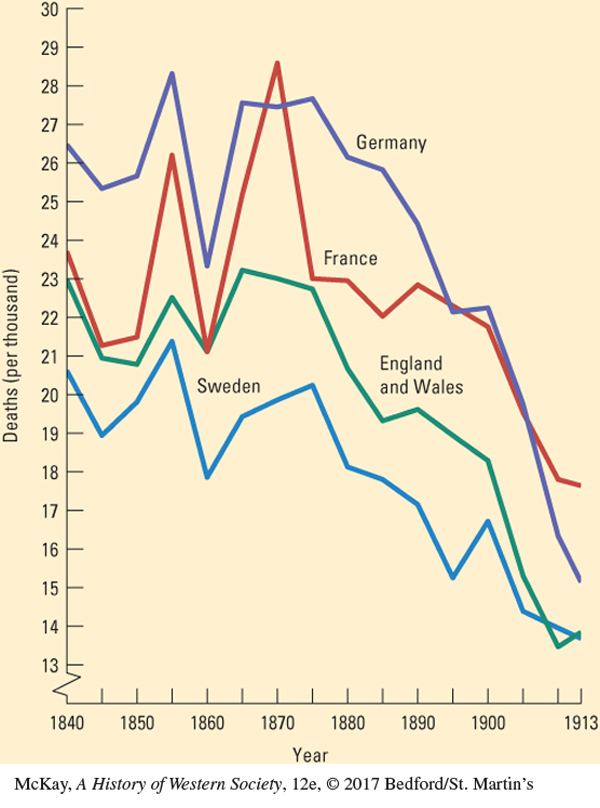A History of Western Society: Printed Page 722
A History of Western Society, Value Edition: Printed Page 691
A History of Western Society, Concise Edition: Printed Page 721
The Advent of the Public Health Movement
Around the middle of the nineteenth century, people’s fatalistic acceptance of their overcrowded, unsanitary surroundings began to give way to a growing interest in reform and improvement. Edwin Chadwick, one of the commissioners charged with the administration of relief to paupers under Britain’s revised Poor Law of 1834, emerged as a powerful voice for reform. Chadwick found inspiration in the ideas of radical philosopher Jeremy Bentham (1748–1832), whose approach to social issues, called utilitarianism, had taught that public problems ought to be dealt with on a rational, scientific basis to advance the “greatest good for the greatest number.” Applying these principles, Chadwick soon became convinced that disease and death actually caused poverty, because a sick worker was an unemployed worker and orphaned children were poor children. Most important, Chadwick believed that government could help prevent disease by cleaning up the urban environment.
Chadwick collected detailed reports from local Poor Law officials on the “sanitary conditions of the laboring population” and published his hard-
Chadwick correctly believed that the stinking excrement of communal outhouses could be dependably carried off by water through sewers at less than one-
The public health movement won dedicated supporters in the United States, France, and Germany from the late 1840s on. Governments accepted at least limited responsibility for the health of all citizens, and their programs broke decisively with the age-
